Repercussions, by J.M. Cyrus
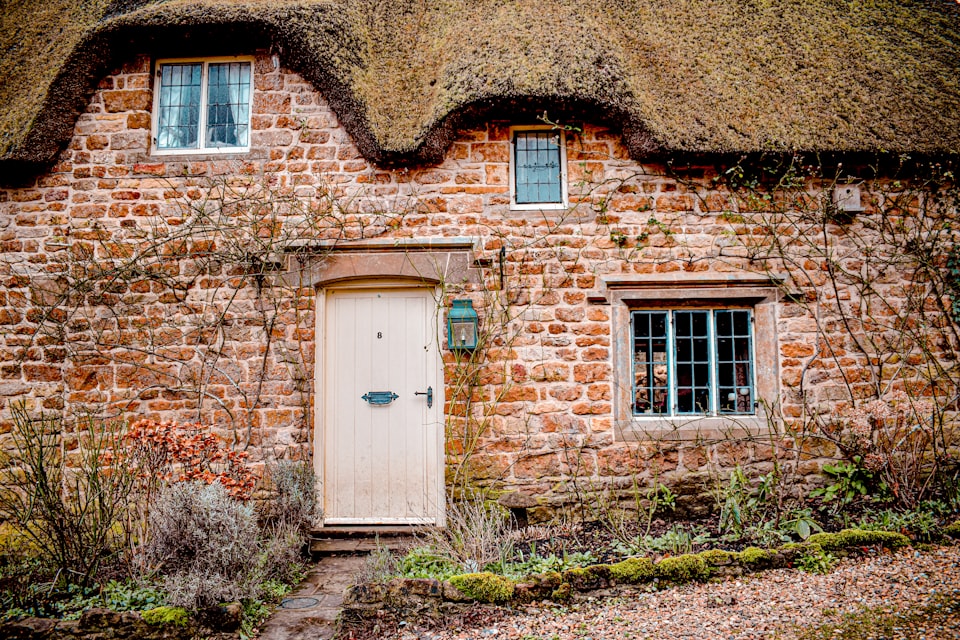
Content warnings
Bereavement. Grief.
The house was cold but with the memory of warmth, the air reminiscent of what remains when an embrace has finished. She’d always had the fire lit, but now the grates were empty, even of ashes, sprites long gone.
“Well, let’s get started.” My mother sounded resigned. Tears were paused in duty.
My grandmother’s house was full and empty on that late spring morning. Sounds echoed through memory and silence.
Our new noises were awkward, out of sync with the house's habits. Were my treads too loud? Was this the correct rhythm for opening and closing cupboards? Is this the route to track through the rooms?
Memories overlapped and layered like scrying in a dirty pond. The house’s appearance through my child self’s eyes, in recent years and now, its actuality, were pondweed, dirty water, indefinable swimmers and cloudy, nonsensical visions all at once. The spaces beneath furniture, cavernous for a child, had become replaced with mere function. Then with awkward inconvenience for an elderly woman. The corridor that had taken an eternity to race was now smaller, without magic. The charms were silent, unglowing, unpowered.
Less than a fistful of years ago my mother had hired a carpenter and builder from the town on the other side of the valley. They'd been employed to improve the house, making it appropriate for a woman nearing ninety. A handhold was added by the kitchen step, and a bench by the front door. The cowhide rugs with their wavy hair, bald patches and curled edges ripe for tripping were removed. All doors and cabinets received larger handles. The privy was filled in, and an inside toilet with a cistern was installed. Much better not to go outside in midwinter or the pouring rain with arthritic joints (not to mention the benefits of a pull cord over an ash bucket). It had become a tourist draw in the village, almost annoying my grandmother. Though I suspect she enjoyed complaining about her visitors. The house became safer, but wasn't the same.
When my mother replaced all the guttering candles with lanterned fire sprites, my grandmother had allowed them with significant hesitant suspicion. She didn't trust the fluttering, luminous wisps. They were from a land so far north her home nation hadn’t even named it.
When my mother offered to have my grandmother's favourite chair reupholstered, she refused, standing to her full four-and-a-half foot height and stamping her foot, releasing rare green sparks from her toes, “Don't you dare!”
She'd said the compressed sawdust stuffing was easier on her old bones than any costly charmed feathers. My mother had asked what about the faded fabric and dangling trims. My grandmother had laughed but hadn’t answered.
The chair now bore an empty silhouette, a seat imprint where a woman should be. I could see crumbs from her favourite biscuits from the village bakery in the creases. The errant pink flower petals and green pistachio nubs had come to rest like gems amongst the aged faded wool.
We’d brought her dog, an ancient mongrel terrier, with us. My mother had taken pity on his mournfulness and he kept us company as we worked. He entered the house looking hopeful, and searched room by room; of course, finding nobody. He lay by her chair where her slippered feet would have been, eyes rheumy and breath heavy.
Tidal waves of a life lay around us. We sorted through the remnants and driftwood like beachcombers.
We opened the windows wide. Bracing breezes bearing birdsong and floral fragrances rippled through, eddying the residual smells.
The familiar aromas of my grandmother’s cooking lingered despite the breeze and our cleaning. The lye, sage, and vinegar only temporarily masked the olfactive ghosts. The house clung to the stale, nostalgic scents, as if unwilling to release them. I could still smell the spices and combinations I couldn't name, but would know their flavour anywhere.
She’d tried to teach me dishes from her homeland several times. I haven't made them without her, feeling an imposter for enacting methods characterised by eye, history, and an instinct I didn't believe I had. They’d been burned away before they got to me by my mixed parentage, the cold climate, and the foreign soil we lived on.
When I put my half-drunk water cup by the kitchen barrel, her voice was on the edge of hearing, admonishing me for not covering it with a cloth, for leaving where my lips go unprotected from flies. A residual fear of her hot country upbringing.
I kept expecting her to emerge from the kitchen bearing her tray, or hear her mutterings about the song crystal we’d brought to cover the silence.
But we couldn’t cover the heavy quiet with tavern songs or chatter, not really.
I found a self-portrait of her when she was my age, the pastels and pencils faded. My heart ached at the sight of her ears, tidy points decorated with silver earring caps. She’d only ever had round ears when I’d known her. My mother adjusted her hair, it always covered her ears, and wouldn’t meet my eyes.
“You look like her,” my mother said. She’d told me this before. I was never sure whether it was said as an entirely good thing.
I examined myself in a looking glass, looking from her graphite face to my own. I saw intergenerational flickers in my jaw and brow bone, our similarity diluted by her necessary choices and choices made for her. She’d left her home, running to another nation for solace and rescue, leaving behind her culture, her heritage for safety and the unfamiliar.
So, my skin is lighter, thanks to a lifestyle far away from drenching sunshine and the filter of my father's diaspora, also granting me height and rounded ears (though a little large). Even though my cheekbones are softer, and my face less wide, I exist as a reminder of how far we’ve come.
And what was left behind.
I’ve never been forced to trim my ears the way she was when the war began in her home. This nation is more accepting. I’ve had classmates who never shaved their horns, never even considered capping their teeth, and wore all their ritual jewellery with pride, embracing the full plethora of the world beyond the map lines.
But my mother internalised her parents’ fear. A hesitation about our identity follows me like a shadow on an overcast day.
We found dozens of portraits in my grandmother’s sketchy pencil and charcoal, people I didn’t know and my mother only vaguely recognised. Smiling faces, unfamiliar houses, traditional dress, exotic plant life and sprawling families. Persistent features stared back; my mother's forehead, my aunt's eyelashes, my uncle's jawline, my grandmother's head of hair.
“These can't be anyone but family,” my mother said. “But I don't know who they are.”
“The past is another country,” I joked. We groaned.
Nestled amongst the papers was a small leather bag, the leather so old it was shiny, the suede softness worn through to toughness. One drawstring was frayed, the other had a knot so tight it would never be undone. It was achingly familiar.
My mother made a sound between a sigh and a sniff. My eyes tickled. We opened it and found a pair of narrow-rimmed tortoiseshell spectacles. They were well-made and must have been bought from a wizard in the city. They would have made my grandmother a lot of money if sold on.
“I didn't realise she'd kept them,” my mother whispered.
Her hands were gentle, so gentle, as she held them. When unfolded, the spectacles hung in mid-air, missing their face.
I watched as my mother moved, possessed or propelled by strange instinct, and brought the bridge to her nose, smelling it. I laughed, nervous, confused. My mother's face scrunched, creased, and she sobbed.
“They still smell like him,” she muttered.
I sniffed them. They did.
It had been a long time since his absence had felt so close. Of course, it had been more tangible for my grandmother. He’d made her promise to have no partner after him, consigning her to singular for the rest of her days. I never asked her how that made her feel. Her decisions, her wishes are lost to the sands of time, and we work our way through the dunes.
As we put the leather pouch to one side, I realised he would have been gone by now anyway, even if he’d survived then. Time spanned like a rickety bridge of what-ifs.
My mother and I continued our beachcombing, finding nuggets of loss amongst the flotsam. We searched within the forgotten entrails of cupboards, encountering stockpiles, duplicates, and souvenirs.
In the kitchen, we found multifarious jars with indefinable contents and unintelligible handwriting. There was a cupboard of clean healer jars and temple pots, from feast days and travelling potion sellers, ready for reuse at any time. I saw some stamps from healers who hadn’t passed through in decades, and yet their pot remained.
“She never threw a good pot away,” my mother commented. I remembered my mother's cupboard of similar contents.
“What was she expecting to do with them?” I asked, my tone neutral. My mother shrugged.
I hesitated, trying to work out what to do with so many. A brick wall of terracotta and hammered metal.
I overheard my mother muttering as she sorted a box of clothes, interspersing her words with the tongue she’d never taught me. When she dismissed some residual charms and wards, barely luminous with their owner gone, she spoke again in the fluid lilting tones, distant and weighted.
I’ve learnt some of the vocabulary since, the wonders of a diversifying nation, but her words still intimated a secret language, memories of exclusion as a child reverberating within their roundness.
A child sat at a table with grownups who’d chosen not to pass on the language they spoke. Jokes I couldn’t laugh at. Stories with no beginning or end. Cast adrift by the belief I could have a more solid place in this country we now called home; no longer other, but just another.
I remembered my grandmother's heavily accented voice and wondered what else I hadn't been taught of our history.
We discussed new homes for her favourite clothing. We discovered traditional dresses she'd brought in her flurried departure. In a burst of playfulness, my mother and I dressed up.
“See? You really do look like her!”
I’ve been layered with expectation and history, caught halfway in a liminal space of the ethnicity tickbox, neither from here nor there. How can I live up to someone dead? How can I pass as part of a culture I hadn’t physically lived in? Is it appropriation if I’m a culture by blood but not by life?
I felt like an invader, an interloper, in my grandmother's private domain. The house seemed to sense my discomfort or became tired of us. I heard shuffling thumps upstairs. I checked, even climbing the ladder into the eaves, and it was empty. Not even a squirrel. There was a knock at the front door, but the porch was empty. The back door slammed, and I rushed to check. It was open to the modest, tranquil garden where a finch bounced along a wall.
I’d found a notebook filled with my grandmother's looping mother-tongue script. When I wanted to show my mother, I couldn’t find it. When I tried to find it for myself, it was where I'd left it.
In a flurry of exasperation, I announced I'd take the dog for a walk, desperate to no longer feel so marooned in the shipwreck of a life's leftovers.
We went to the river and patrolled the muddy path beside the reeds and yellow irises. Their colour was a brave shade against the grey sky and our grey mood. My mother had once told me my grandmother had adored the yellow irises, unknown back home.
I contemplated my grandmother's stories of her childhood home's heat, their strong sun, their cooling afternoon breeze, heady sweets and ripe plump fruit. The cool wind got inside my jacket and tousled my hair away from my neck and ears.
I sat on a fallen tree watching the river, the dog panting geriatrically beside me. The water eddied around rocks and tiny grassy islands. Ducks snoozed on the shadowy banks. River plants, long like unwound upholstery trim, were tugged by the perpetual current into strands pointing downriver.
I tried not to think of my grandmother, which was impossible. Churning her decisions, I wondered what I'd say to her if she were still here. What would I ask? Would I ask her more about the war? Would I ask her about the history she skipped over?
She came here for a better life, and with our prosperous peace, our acceptance, our village gossip and our cold winters, things are better. But in rescuing her family's future she’d had to deny a history.
A child scrambled onto the log beside me.
“Hello,” she said, swinging her legs.
I looked around and saw nobody else.
“Can I pet him?” the girl asked. The dog roused from his comatose position and stared with plaintive, puppy eyes at her. My tongue was slow in my melancholy state. The girl ignored my silence and gave him some well-loved scratches.
“Good dog!” The girl's smile was broad, showing mismatching teeth, a child's mouth with baby teeth and adult teeth both at once.
The front two overlapped and my insides became hot oil. I’d recognise that overlay anywhere. As she giggled, she tucked her hair behind her ears, revealing two tidy points. There was a fresh bandage over her left forearm, where I'd only ever seen a faded scar. The constellation of dark freckles over her cheekbones was fresh and sparse. Her hands extended with childish grace, unencumbered by arthritis and unblemished by sunspots.
I couldn't speak.
The child babbled, her voice full of impersonations and accents. Her conversation eddied and flowed like the river, thoughts replacing each other in an irresistible stream of consciousness. She wished she could have a dog like this. She wanted to see the world. Did I come here for a walk every day? How did I get my hair to do that? Yellow's her favourite colour, like those flowers.
I'm still unsure how much time passed, minutes or seconds. The dog sat erect the whole time, staring at the girl's face and giving long blinks with her caresses.
The girl smiled, and said, “Thank you for letting me pet him! Look after him, will you?”
I wanted to speak but she disappeared round a corner before I could organise my voice.
I sat for a while, watching the birds and flowing river, waiting for my heart to stop racing.
The dog fell asleep on my feet, drooling warm rivulets. I carried him back to the house. He whined on our return to its familiar smell.
JM Cyrus
JM Cyrus lives in London, writing whenever there is a chance, and reading even when there isn’t one. She has a master's in Reception Theory, which means she likes reading and writing about reading too, just to complicate things. Her work can be found all over the place.
Website: https://jmcyrus.carrd.co
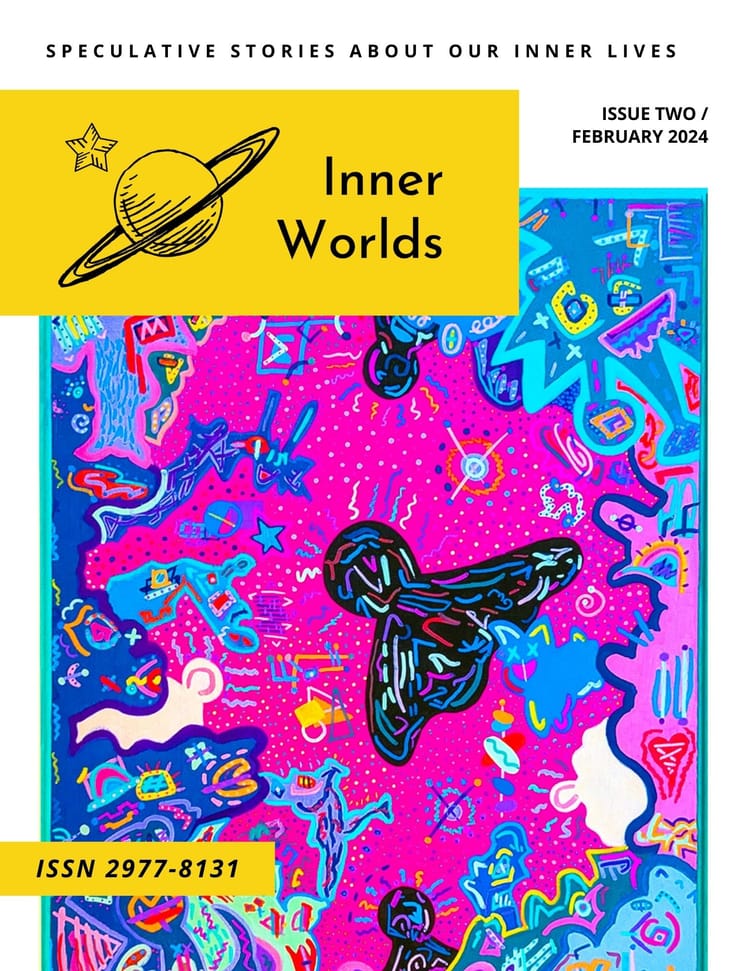
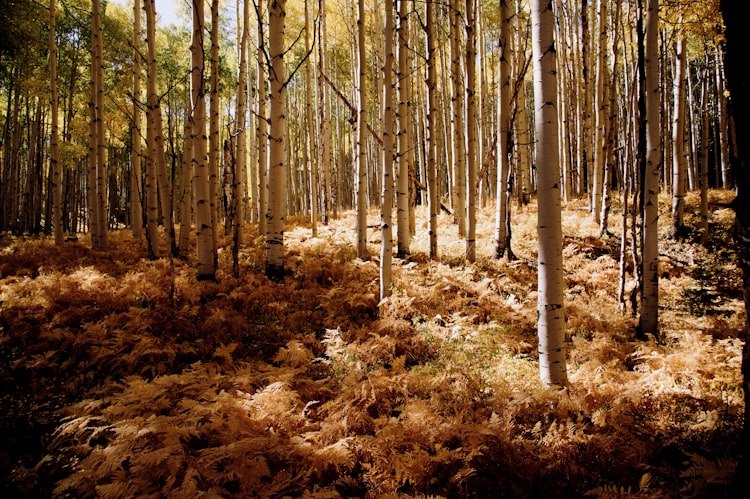
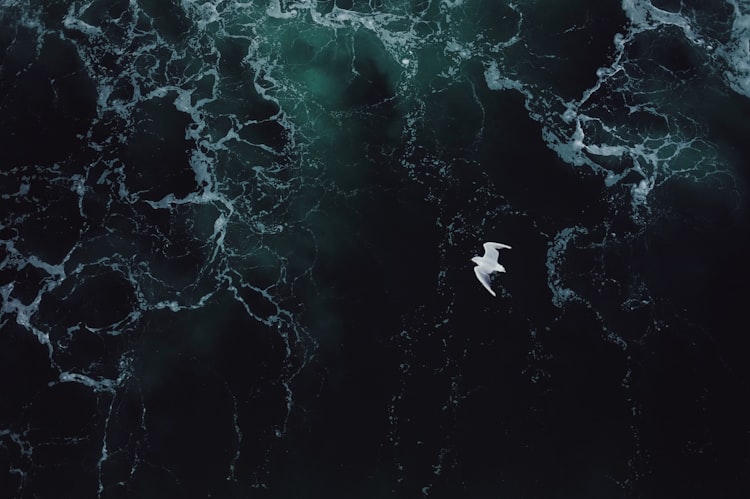
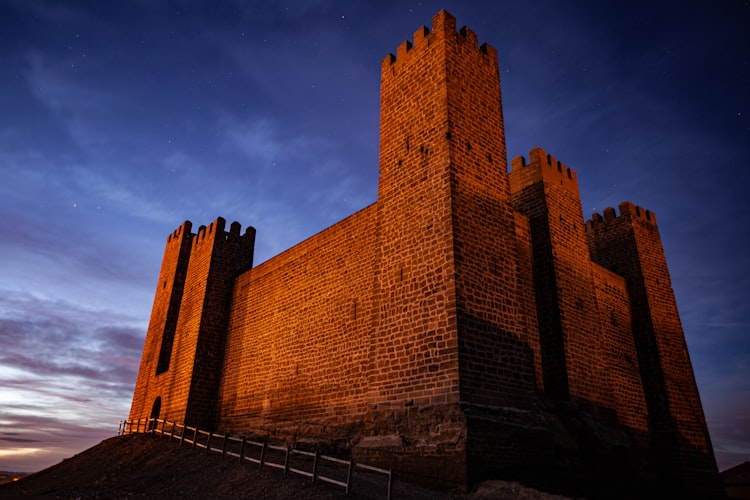

Member discussion